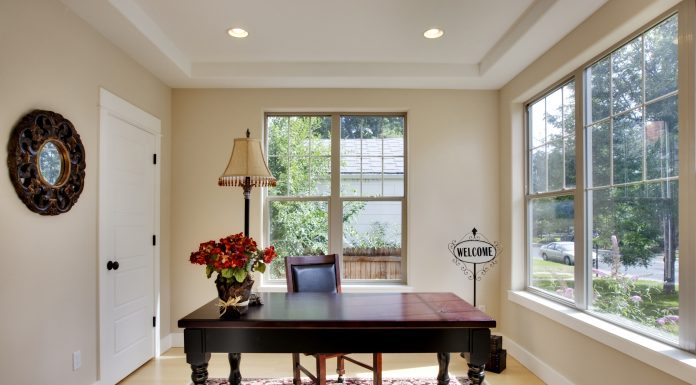No one wants to face financial hardship in their golden years, yet the reality is that many do. Imagine still working well into your 70s, your back aching, your energy waning, and your dreams of travel and relaxation fading. Thankfully, many loan instruments are available to senior citizens to help pay for their retirement expenses. Read on to know more.
Online Personal Loans
A personal loan can be used for practically any purpose. For senior citizens, these reasons include making home improvements, financing medical expenses, or fulfilling long-held travel aspirations.
Generally, you can apply for a personal loan in person or online. However, applying for a personal loan in person can be frustrating and tricky. That’s why online loans have gained immense popularity. The digital application process provides accessibility and convenience that traditional in-person applications often lack.
Online loans come with streamlined application processes, more relaxed qualification requirements, and faster approval. Moreover, lenders like CreditNinja usually offer competitive interest rates, particularly for seniors with a solid credit history.
It can translate into lower monthly payments, significantly easing the financial burden for seniors on fixed incomes.
Loan Against Property
This type of loan is a powerful tool for those seeking significant financial assistance while still retaining property ownership. The loan-to-value (LTV) ratio is a crucial factor in this arrangement.
This ratio, typically ranging from 50-80%, is determined by the bank after a comprehensive evaluation of the property’s market worth. The higher the LTV, the more substantial the loan amount that you can avail.
One of the notable advantages of a loan against property is the extended repayment period it offers. Unlike many other loans, this type can be repaid over several years, making it an attractive option for individuals seeking a long-term financial solution.
Also, this type of loan provides the flexibility to utilize the funds for various purposes. Whether renovating a property or consolidating existing debts, the usage options are diverse and tailored to individual needs.
Pensioner Loan
A pensioner loan serves as a valuable financial tool tailored specifically for senior citizens, providing them with access to funds without the need for collateral. This unsecured loan operates like a traditional personal loan, allowing retirees to address their financial needs and aspirations.
The eligibility for this type of loan primarily hinges on the individual’s pension income and age. Banks carefully evaluate these factors to determine the maximum loan amount that can be extended and the suitable repayment tenure.
This personalized approach acknowledges the unique financial situation of retirees, ensuring that the loan terms are aligned with their circumstances and capabilities.
While pensioner loans offer financial flexibility, it’s important to note that the interest rates associated with these loans tend to be slightly higher compared to conventional unsecured loans. This adjustment reflects the perceived increased risk for lenders when extending credit to retirees.
Despite this, it’s possible to secure a competitive deal by diligently comparing the offerings of various financial situations.
Reverse Mortgage
A reverse mortgage offers a flexible way for senior citizens to tap into the equity of their property. This option provides a distinct advantage by allowing borrowers to receive a lump sum or a regular income akin to an annuity.
The flexibility of this loan option is a significant draw for seniors. It grants them the freedom to choose how they receive their funds based on their individual financial needs and preferences, whether a one-time lump sum for a specific purpose or a regular income stream to supplement their retirement.
One of the defining features of a reverse mortgage is the deferred repayment structure. Throughout the tenure of the loan, the borrower retains the right to reside in and use the property.
It’s only at the end of this period, or upon certain triggering events like the borrower’s passing or decision to move, that repayment becomes due. The borrower or their legal heir can then settle the outstanding amount and retain ownership of the property or allow the lender to take possession of the property to recover the loaned amount.
Furthermore, reverse mortgage loans typically come with advantageous terms. Most notably, banks don’t impose prepayment penalties, offering borrowers the flexibility to repay the loan at any point without incurring additional costs.
Additionally, the interest rates on reverse mortgages tend to be lower than those associated with many other types of loans, making this option particularly appealing for seniors seeking cost-effective financial solutions.
Overdraft Against Bank FDs
One of the key advantages of the overdraft against FD is that the interest is calculated daily on the outstanding amount. This means you only pay interest on the amount you have utilized from the overdraft, not the entire limit.
It can result in cost savings, particularly compared to traditional loans, where you’re charged interest on the entire loan amount from day one. Additionally, this type of overdraft facility often has no prepayment penalty.
Moreover, the overdraft against FD offers a high degree of flexibility, allowing you to access funds without breaking your fixed deposit. It’s a convenient and cost-effective way to bridge temporary financial gaps without liquidating your FD prematurely.
Final Takeaway
These five loan options empower senior citizens to address financial needs in retirement with flexibility and tailored terms. Ensure to consider and understand the unique benefits of each option so you can make informed decisions that support your financial well-being in your golden years.

























